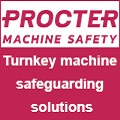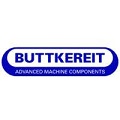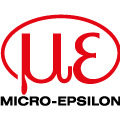
Posted to News on 11th May 2007, 13:41
Batch monitoring helps to prevent product recalls
Les Slocombe, product manager for field products at ABB Limited, discusses how batch monitoring and recording can play a key role in preventing and containing any potential product problems.
According to solicitors specialising in this area, a combination of tighter legislation and a growing fear of litigation is to blame for the number of consumer product recall incidents growing by between 20 and 25 per cent each year across Europe.
For example, the European Union's General Food Law Regulation (EC 178/2002) is a major culprit, because anyone who identifies a potential safety issue with food now has a responsibility to act immediately. Where companies were previously able to make judgement calls about whether they needed to withdraw a product on safety grounds, they now only have to have a concern and they are forced to act. Although European food recalls had been following a general upward trend, with 2310 in 2003 and 2588 in 2004, the number of recalls leapt by almost a quarter to 3158 following the implementation of the new regulations in January 2005.
Food is a high-profile area, with obvious consumer safety implications, but regulations have been tightening up in a similar way across the board with the introduction of separate legislation affecting non-food products. European Directive 2001/95/EC is implemented in the UK through the General Product Safety Regulations 2005. These regulations apply to all non-food products used by consumers and the resulting recall statistics follow a similar pattern to that in the food industry. The number of serious risk notifications to the EU's rapid alert system more than doubled from 388 in 2004 to 924 in 2006. Affected products included everything from cooking pans and clothes to jet skis, with toys and electrical appliances topping the chart.
Importance of standards
It is worth noting that, for the first time, these new safety regulations explicitly recognise the importance of working to accepted technical standards in order to produce safe products. In effect, only products that comply with the relevant CEN, CENELEC or ETSI standards are deemed to be safe.
Consumer-facing industries are not the only ones affected by the wider trend towards greater reliance on standards. Industries serving other businesses are also increasingly expected to operate within externally recognised standards. In fact the importance of complying with industrial standards in general has never been greater.
It is not enough for companies simply to comply; they must also be seen to comply. Any failure to demonstrate compliance with their particular industry's accepted standards of best practice will leave companies with a lot of explaining to do if something goes wrong – whether they are defending themselves in a criminal court or trying to persuade their insurance companies to cover the costs of defending against civil litigation brought by disgruntled customers.
Effective monitoring and data gathering is the best defence, regardless of whether you are freezing chickens to meet Chilled Food Association guidelines or cooking up aeroplane parts to meet the Nadcap AMS 2750D standard for heat treatment.
Batch traceability
The difficulty is that a lot of industrial recorders are only set up to monitor and record data at a particular point in the production process, such as a specific process vessel or piece of machinery. But what many companies really need is a batch monitoring approach that can collect and process data from multiple stages of production as a given batch of product makes its way through the plant or factory. If the batch later comes under suspicion for some reason, this batch-wise monitoring approach should make it far easier for manufacturers to extract the evidence they need to show that they have followed best practice procedures from start to finish.
Furthermore, if something does go wrong, batch-by-batch monitoring makes it easier to trace and recall batches of affected product quickly and efficiently.
The potential cost implications are enormous. For example, it cost the food industry an estimated £100million when contaminated Worcester sauce sparked the high-profile Sudan 1 scare. The illegal red dye entered the British food chain in chilli powder that was used to manufacture Worcester sauce. The manufacturer then unwittingly supplied the contaminated sauce as an ingredient to a wide range of other food companies, which used it in everything from pesto to char sui pork.
Effective batch monitoring at the affected companies could have confined the extensive product recalls to those products that were actually contaminated, rather than forcing companies to recall millions of 'suspect' products, some of which may not have been affected.
Practical implementation
The addition of a batch recording function to ABB's SM videographic recorders now allows data to be tagged on a batch-by-batch basis. The operator can identify the batch data by name and/or number and enter essential batch information. In addition, ABB's DataManager data analysis software package allows batched data to be located and retrieved using its batch identity.
The batch recording facility makes it easy to tag the beginning and end of each batch recording. Individual recordings can then be tagged with relevant information such as the product type, date and unique batch number. This simplifies data capture, facilitates analysis and increases traceability.
Today's European manufacturers are more highly regulated than ever. Many companies may feel that their existing quality assurance procedures should ensure that their products deliver the kind of consistently high quality that will protect them from legal action by regulators or customers. However, experience has shown that even the best companies can occasionally run into trouble. Batch monitoring effectively mitigates these risks by helping to minimise the chance of anything going wrong in the first place and by helping companies to limit the damage more effectively if the worst should occur.
For advice on how batch monitoring can help you comply with legislation and protect against legal action, email [email protected].
ABB Automation Technologies (Instrumentation & Automation)
Howard Road
Eaton Socon
PE19 8EU
UNITED KINGDOM
+44 (0)1480 475 321






























